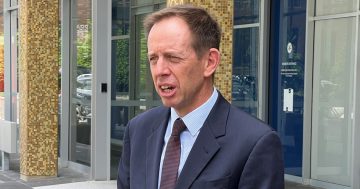
The representation of the ACT Greens in our legislative assembly following the 2016 election is being widely argued and carefully even apprehensively judged.
Following their poor showing in 2012 when they lost three seats and were reduced to Shane Rattenbury they acquired a kingmaker role keeping Labor in government.
Many people from both mainstream parties believe this price was too high, with both Labor and Liberal seeking to govern in their own right this time around.
Correspondingly the Greens are anxious to reclaim what they see as their full percentage of Canberra’s progressive vote.
This quest will bring them into direct conflict with Labor, many of whose members are silently resentful of the concessions made for Rattenbury’s support. Like all coalition arrangements tensions arise no matter what is proposed in the interests of minority Party policy.
The ACT Greens success in 2008 surprised many people and, in spite of claims to the contrary, it is fair to say not much was known about what they really stood for.
I am aware this claim will be disputed but the ignorance coupled with lacklustre performances by the major parties saw a drift to an alternative representation, hence four were elected.
Clearly the ACT Greens role in the 2008-2012 Assembly did not meet their previous supporters’ expectations and only Shane Rattenbury survived with the committed vote largely from North Canberra.
Now they are back again with mixed chances in the new five by five member electorates.
Because they were successful in two five member electorates (Ginninderra and Brindabella) in 2008 prospects this year could seem promising. However while minor boundary changes to three electorates may not dramatically affect a result the breakup of Molonglo into two will, as with the major parties, seriously reduce personal support.
Another major factor is “the tram” which has caused fierce debate across Canberra and is seen very much as an expensive Greens initiative providing a service to a limited region of the ACT.
It is unlikely Labor would want to be locked into any other costly scheme as the price of political support in government in future, while the idea of negotiating with several Green MLAs to retain power is of nightmare proportions.
Labor will fight as hard to exclude Green MLAs from the next Assembly as they will against the Liberals and perhaps more so because the Greens threaten to take votes from Labor’s natural constituency.
We live in interesting times.





















